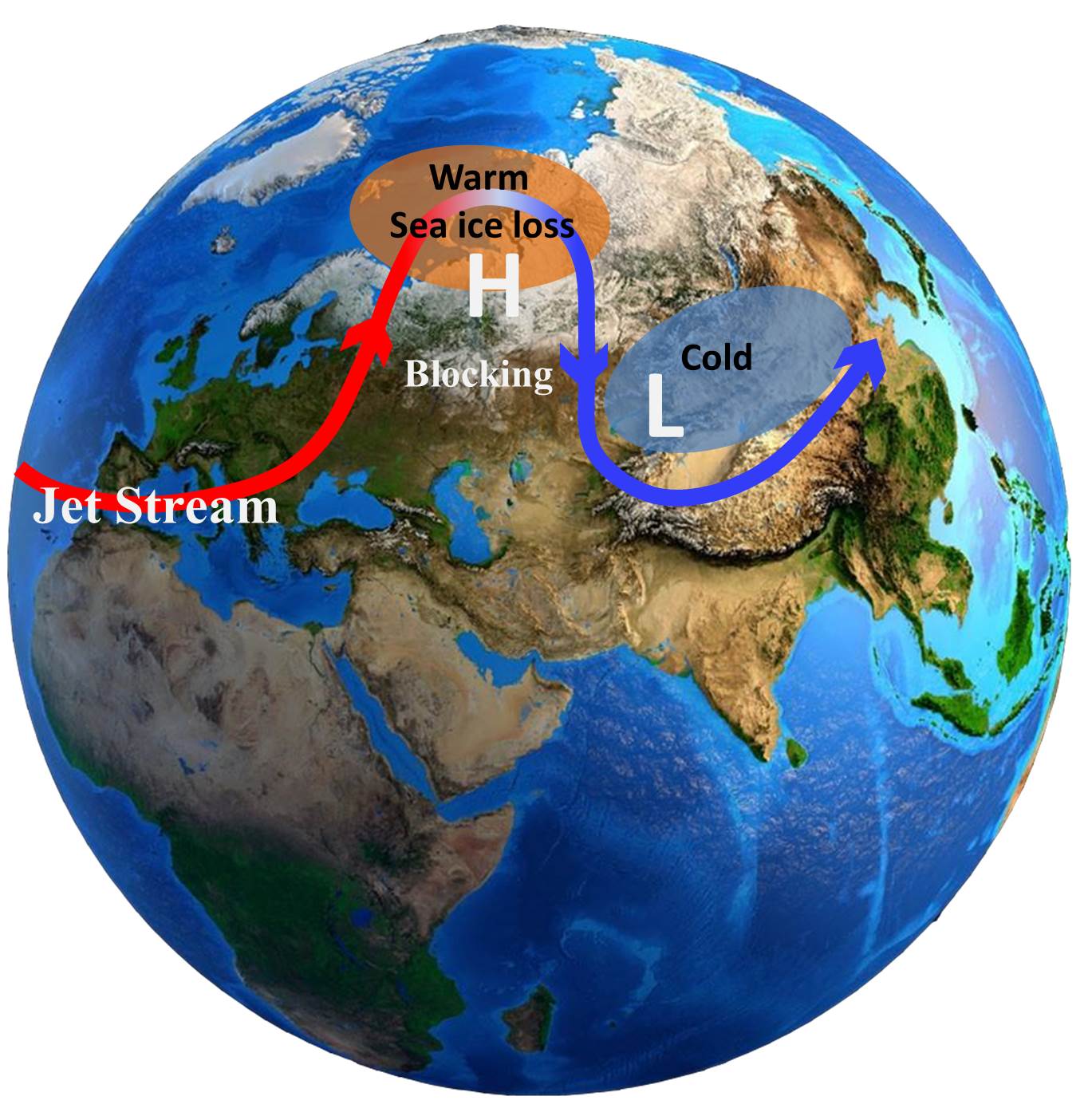Arctic Warming to Increase Eurasian Extreme Cold Events
http://english.iap.cas.cn/RE/201705/t20170515_177091.html[font face=Serif][font size=5]Arctic Warming to Increase Eurasian Extreme Cold Events[/font]
[font size=3]In recent years, Arctic warming and extreme events have attracted widespread attention of the world. Recently, Dr. YAO Yao and Prof. LUO Dehai from the Institute of Atmospheric Physics investigated the impact of Ural blocking (UB) on Eurasian extreme cold events in response to Arctic warming and obtained some interesting findings.
The intensity, persistence of UB-related Eurasian cold anomalies, according to LUO and his collaborators from USA and Australia, depend strongly on the strength and vertical shear (VS) of the mean background westerly wind (MWW) over mid-high latitude Eurasia related to Barents and Kara Seas (BKS) warming. The large BKS warming since 2000 weakens the meridional temperature gradient, MWW and VS, which increases quasi-stationarity and persistence of the UB (rather than its amplitude), and then leads to more widespread Eurasian cold events and further enhances the BKS warming. LUO and his coauthors also examined the physical mechanism behind the observational result using an UNMI model.
[center]

[font size=1]Sketch map of the possible physical process between Arctic warming and Eurasian cold events (Image by YAO Yao)[/font][/center]
"The cooling over Central Asia occurs mainly during 2000-2015 and is related to the quasi-stationary and persistent UB," said LUO, "the Northern Hemisphere winter warming hiatus observed in the recent decade (2000-2015) is likely associated with the quasi-stationary and persistent UB linked to the background Arctic warming or sea ice loss over the BKS. In particular, cold (warm) extremes are more persistent over Central Asia (BKS) for weak MWW or VS winters than for strong ones. "
The study was supported by the National key research and development program of China (2016YFA0601802) and recenlty published in
Journal of Climate.
…[/center][/font][/font]
